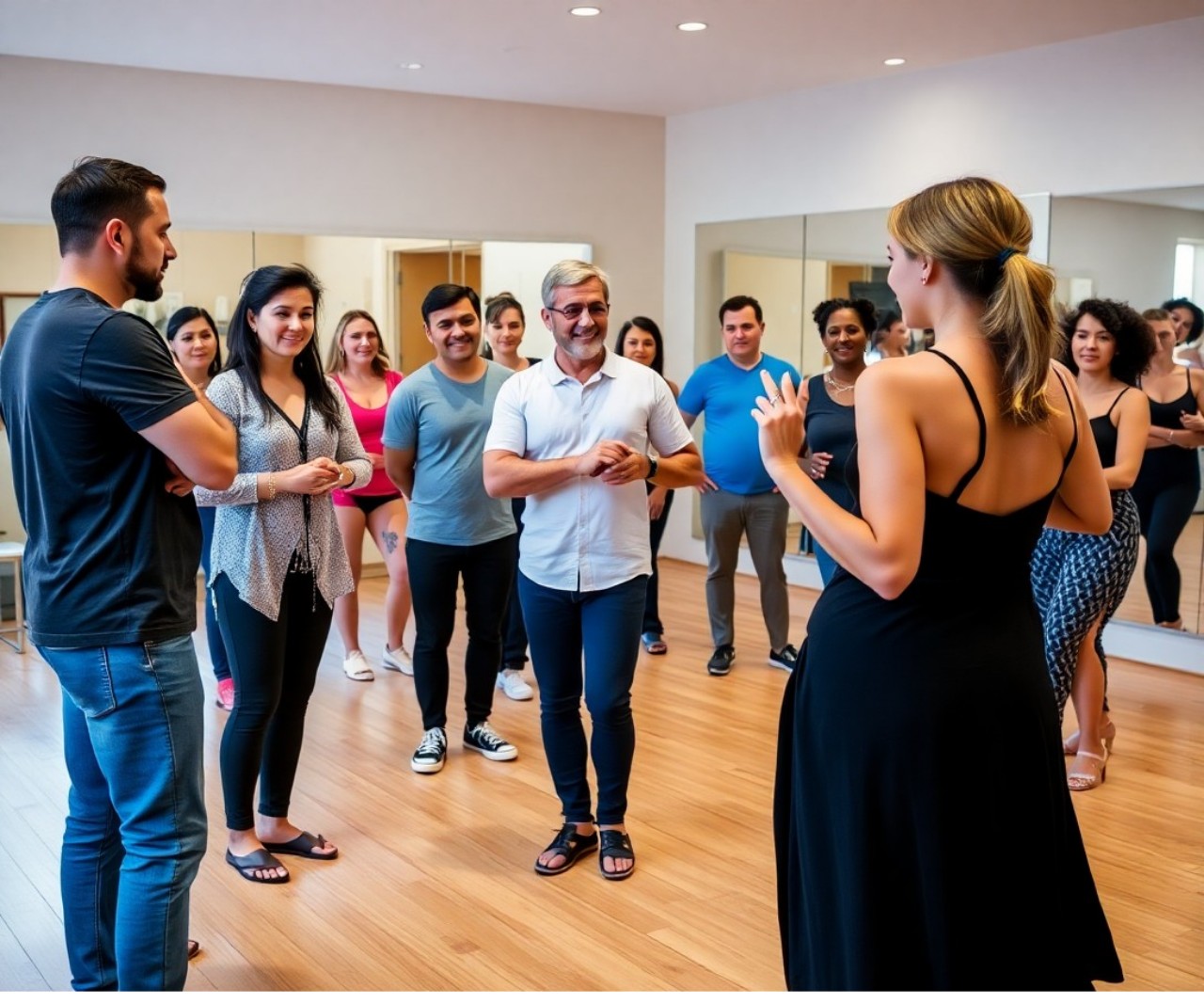Starting your Kizomba journey is exciting—but like with any new skill, beginners often fall into a few common traps. Don’t worry! These mistakes are part of the learning process. Becoming aware of them early on can help you progress faster and feel more confident on the dance floor.
1. Overthinking Every Step
Many beginners try to memorize every move instead of feeling the flow of the dance. Kizomba is more about connection, musicality, and presence than about choreography.
How to avoid it:
Focus on the basic steps and walking with your partner. Trust your body, follow the rhythm, and allow yourself to enjoy the moment instead of aiming for perfection.
2. Poor Posture
A collapsed chest, stiff shoulders, or leaning too much can ruin your balance and affect your partner.
How to avoid it:
Keep your spine tall, shoulders relaxed, and core gently engaged. Imagine a string pulling you up from the crown of your head. Good posture creates space and ease in your movement.
3. Not Listening to the Music
Kizomba is deeply musical. If you're only following the counts and ignoring the song, you're missing a key part of the experience.
How to avoid it:
Spend time listening to Kizomba, Urban Kiz, and Semba outside of class. Notice the beats, accents, and emotional tones. Let the music guide your movement.
4. Too Much Force or Tension
Whether leading or following, applying too much physical force or being too stiff can break the connection between partners.
How to avoid it:
Use gentle, clear signals when leading. As a follower, stay responsive, not rigid. Good connection feels like a conversation, not a tug-of-war.
5. Skipping the Basics
It’s tempting to jump into fancy moves, but without a strong foundation, your dancing can become unstable and disconnected.
How to avoid it:
Respect the basics. Practice them with intention. The best dancers return to them regularly—because they know that mastery comes from simplicity done well.
6. Not Asking for Feedback or Clarification
Some beginners hesitate to ask questions in class or fear being corrected.
How to avoid it:
Your teachers are there to support you. Don’t be afraid to ask! Clarifying small details early on can prevent bigger habits from forming later.
7. Forgetting to Breathe and Relax
Nervousness can make you hold your breath or tense up—which directly affects your ability to move and connect.
How to avoid it:
Breathe. Smile. It’s just a dance! Relax your body and mind, and you’ll find your movement flows more naturally.
Final Tip:
Remember, everyone was a beginner once. Be kind to yourself, dance often, and trust the process. Mistakes are simply stepping stones to growth—and with every song, you’re getting closer to becoming the dancer you want to be.
